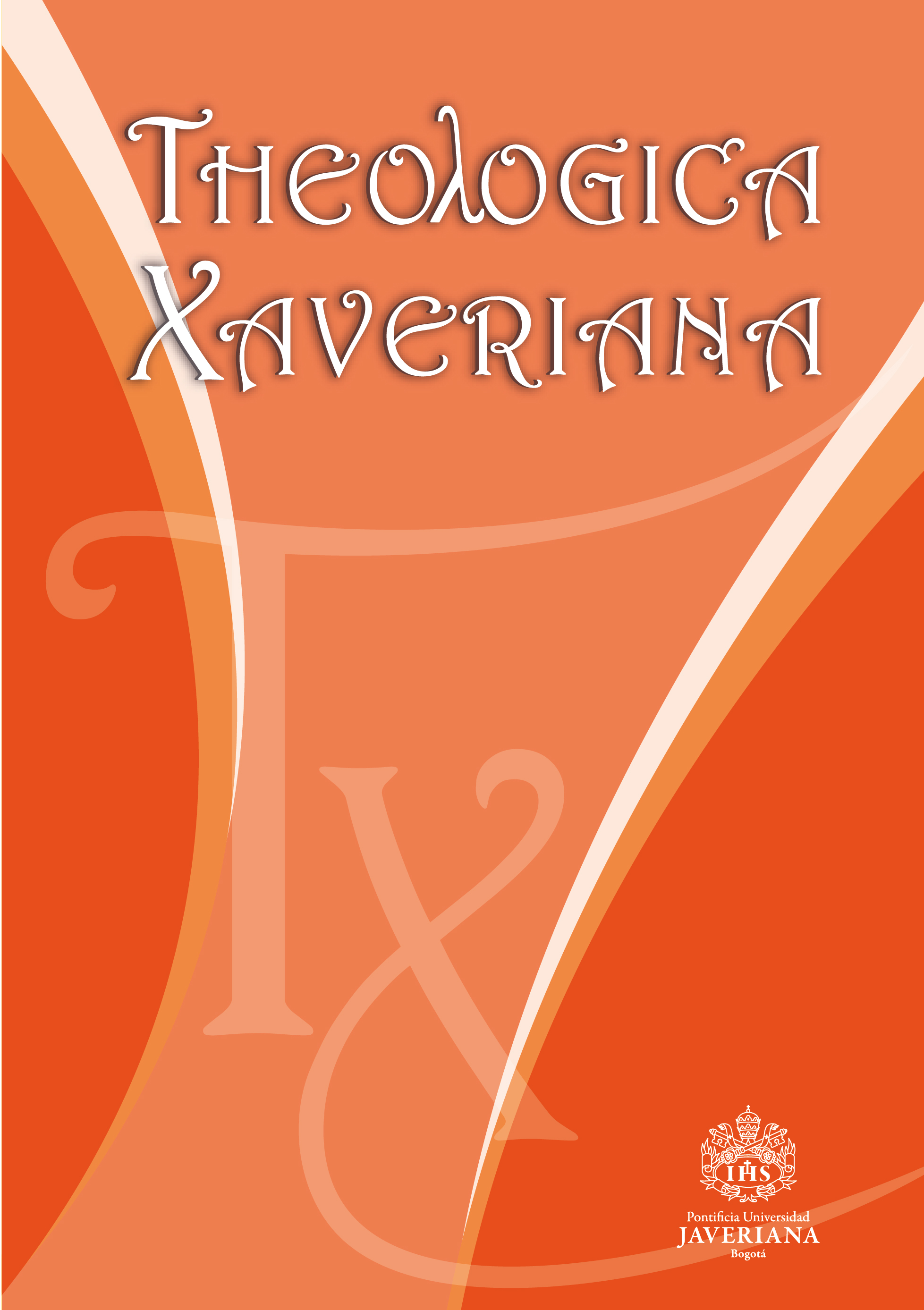Abstract
From the analysis of Luke 23:39-43—where we can observe three ways of dealing with suffering and death— and the dialogue with some authors of bioethics, we present these research that points to the reflection on suffering and death, to help those who carry out a comprehensive monitoring to people who live with difficult-to-cure or terminal diseases. The biblical contribution is combined with the bioethics to generate reflections of support and growth in the midst of extreme situations, aimed to make productive, with a redemptive meaning, the suffering, and the death.
Brown, Raymond. E. La muerte del Mesías. Tomo II. Navarra: Verbo Divino, 2006.
Centeno Cortés, Carlos y Javier Vega Gutiérrez. “La muerte, el duelo y el equipo de salud”: Revista de salud pública 2, Vol. 2 (2008): 14-23.
Díaz, Patricia. “Mentiras piadosas: explicaciones que dificultan a los niños la comprensión de la muerte”. Blog Fundación Mario Losantos del Campo, http://blog.fundacionmlc.org/mentiras-piadosas (consultada el 7 de agosto de 2014).
Fitzmyer, Joseph A. El Evangelio según Lucas. Tomo IV. Madrid: Cristiandad, 1988.
García Marcos, Fermín. “Aspectos éticos del transplante de órganos”. Cuadernos de bioética 45, 2 (2001): 253-265.
Herranz, Gonzalo. Comentarios al Código de Ética y Deontología Médica de la Organización Médica Colegial. Pamplona: Eunsa, 1992.
_____. “Eutanasia o medicina”: Cuadernos de bioética 4, 4 (1990): 21-23.
Juan Pablo II. Exhortación apostólica Salvifici doloris. Roma: Editrice Vaticana, 1984.
León Correa, Francisco Javier. “Bioética de la atención de enfermería al enfermo terminal”. NOVA (2003): 1-116. Disponible en: http://unicolmayor.edu.co/publicaciones/index.php/nova/article/view/5/
_____. “El debate actual sobre la legislación de la eutanasia”: Revista Ars médica 12 (2006): 39-52.
Loitegui, Agustina. Duelo anticipado: sobre el desarrollo del concepto y la importancia de su estudio y abordaje. Buenos Aires: Universidad de Belgrano, 2008.
Marshall, I. Howard. The Gospel of Luke: A Commentary on the Greek Text. Grand Rapids (MI): Eerdmans Publishing Company, 1978.
Morales, David. “La medicina contemporánea y su vínculo con el espiritismo. Notas de la Sociedad Espiritista Cubana” Sociedad Espiritista Cubana, http://www. sociedadespiritistacubana.org/La_medicina_contemporanea.htm (consultado el 20 de julio de 2016).
Ortiz, Pedro. Concordancia manual y diccionario griego-español del Nuevo Testamento. Madrid: Sociedad Bíblica: 1997.
Ospina, Ana María. El paciente terminal, la familia, el proceso de duelo y la acción profesional. Cali: Facultad de Humanidades de la Universidad del Valle, 2005.
Pontificio Consejo para la Pastoral de los Agentes Sanitarios. Carta de los agentes sanitarios. Madrid: Palabra, 1995.
Porta, José y Carlos Guinovart. Definición y opiniones acerca de la sedación terminal: estudio multicéntrico catalano. Madrid: Medicina Paliativa, 1999.
Rivera, Jordi. “¿Qué significa estar en estado vegetativo?” Siervas de los corazones traspasados de Jesús y María, http://www.corazones.org/moral/enfermedad/estado_vegetativo.htm (consultado el 20 julio de 2014).
Rengstof, Kart Heinrich. Nuovo Testamento. Il Vangelo secondo Luca. Brescia: Paideia Editrice, 1980.
Spaemann, Robert. “El sentido del sufrimiento. Distintas actitudes ante el dolor humano”. Revista Atlántida 15, Vol I (2005): 7-23.
Sureda González, Manuel. “Aproximación al enfermo terminal y a la muerte”. Associació Catalana d’Estudis Bioètics, ACEB, http://bioetica.cat/wp-content/uploads/2013/01/APROXIMACION-AL-ENFERMO-TERMINAL-Y-ALA-MUERTE.pdf (consultado el 30 de mayo de 2018).
Tenjo Cogollo, Manuel. “La perseverancia en el seguimiento de Jesucristo a partir de algunas comunidades en el Minuto de Dios y confrontación con Lc 8,11-15”. Pontificia Universidad Javeriana, http://www.javeriana.edu.co/biblos/tesis/teologia/tesis46.pdf (consultado el 5 julio 2013).
_____. “Regalos del Resucitado. Un comentario de Jn 20, 19-23”. Revista Franciscanum 164, Vol. LVII (2015): 255-280.
Varone, Francois. El Dios sádico. ¿Ama Dios el sufrimiento? Santander: Sal Terrae, 1988.
Worden, W. El tratamiento del duelo: asesoramiento psicológico y terapia. Barcelona: Paidós, 2004.
This journal is registered under a Creative Commons Attribution 4.0 International Public License. Thus, this work may be reproduced, distributed, and publicly shared in digital format, as long as the names of the authors and Pontificia Universidad Javeriana are acknowledged. Others are allowed to quote, adapt, transform, auto-archive, republish, and create based on this material, for any purpose (even commercial ones), provided the authorship is duly acknowledged, a link to the original work is provided, and it is specified if changes have been made. Pontificia Universidad Javeriana does not hold the rights of published works and the authors are solely responsible for the contents of their works; they keep the moral, intellectual, privacy, and publicity rights.
Approving the intervention of the work (review, copy-editing, translation, layout) and the following outreach, are granted through an use license and not through an assignment of rights. This means the journal and Pontificia Universidad Javeriana cannot be held responsible for any ethical malpractice by the authors. As a consequence of the protection granted by the use license, the journal is not required to publish recantations or modify information already published, unless the errata stems from the editorial management process. Publishing contents in this journal does not generate royalties for contributors.



